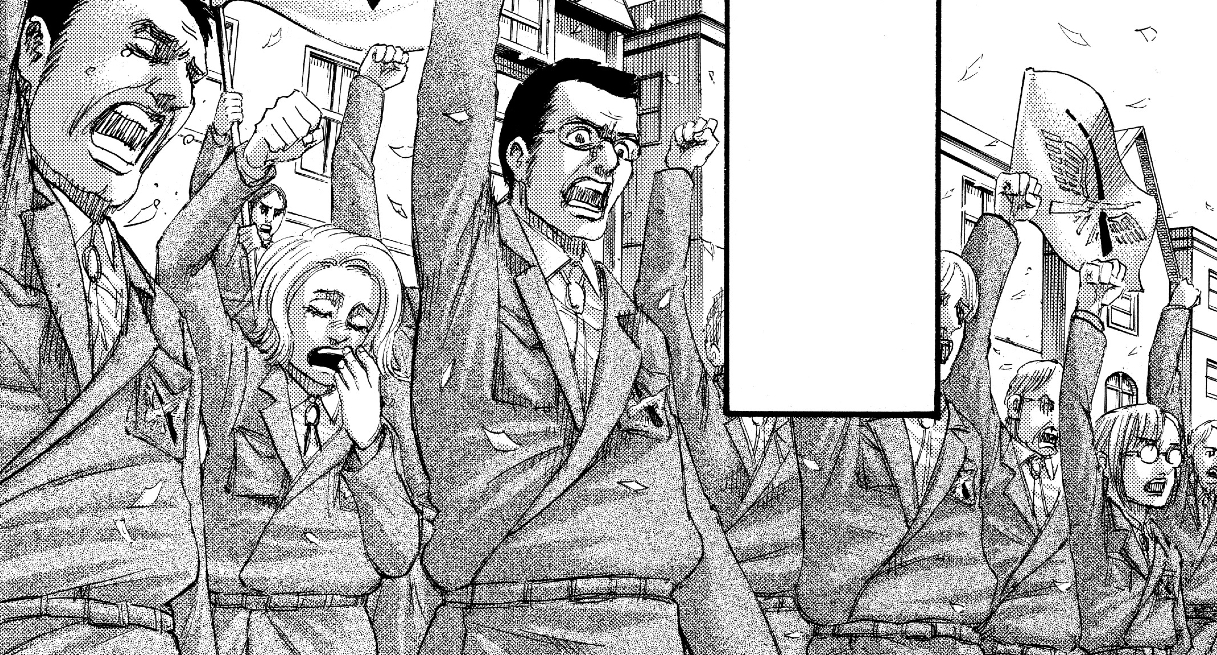Military Section 8 - HUD-VASH vouchers will remain excluded from the SEMAP leasing indicator. Therefore, 24 CFR 985.3(n)(1)(i) and (ii) are still waived. During a HUD-VASH PHA's calendar year, the prorated budget authority available for HUD-VASH vouchers and the units associated with that budget authority will be excluded from the denominators for both units leased, and dollars expended.
If a veteran no longer requires case management, but maintains their HUD-VASH voucher assistance, the VAMC or DSP will maintain contact with the veteran family to provide support and planning assistance with the recertification and reinspection process.
Military Section 8

The VAMC or DSP case manager will remain available to provide support to the veteran family, as needed. by the Homeland Security Department on 03/02/2023 If you are using public inspection listings for legal research, you
L Section Eight Management Assessment Program Semap
should verify the contents of the documents against a final, official edition of the Federal Register. Only official editions of the Federal Register provides legal notice to the public and judicial notice to the courts under 44 U.S.C.
1503 & 1507. Learn more here. If you're receiving Section 8 assistance and your child turns 18, that may affect your eligibility benefits. Whether it does can depend on whether the child continues to live with you or begins contributing to the household income.
Talking to your Public Housing Agency can help you clarify what income or household information you may need to update to determine your continued eligibility for Section 8. This table of contents is a navigational tool, processed from the
headings within the legal text of Federal Register documents. This repetition of headings to form internal navigation links has no substantive legal effect. Eligibility determination and veteran selection is done by the VAMC, DSP, or the PHA, as described later in this section.
H Termination Of Assistance
In the case of the VAMC or DSP, HUD-VASH eligible families are referred to the partnering PHA for the issuance of a voucher or selection for a PBV unit. As stated above, the PHA must accept these referrals, and written documentation of these referrals must be maintained in the tenant file at the PHA.

This site displays a prototype of a "Web 2.0" version of the daily Federal Register. It is not an official legal edition of the Federal Register, and does not replace the official print version or the official
electronic version on GPO's govinfo.gov. A lock icon ( ) or https:// means you've safely connected to the official website. Share sensitive information only on official, secure websites. Section 8 housing can help make housing more affordable for eligible families and individuals.
In terms of who qualifies for Section 8, the general answer is people with low incomes. But the income limits you're subject to and your ability to get help can be determined by where you live or how many people live with you.
Eb- Integrity Fund Fee
1. See, 153 Cong. Rec. H16514 (daily ed., Dec. 17, 2007), https://www.congress.gov/crec/2007/12/17/CREC-2007-12-17-pt3-PgH16381.pdf. The PHA must determine income eligibility for HUD-VASH families in accordance with 24 CFR 982.201. Income targeting requirements of section 16(b) of the USHA of 1937, as well as 24 CFR 982.201(b)(2), do not apply for HUD-VASH families so that participating PHAs can effectively serve the eligible population specified in the Appropriations
Acts; that is, homeless veterans, who may be at a variety of income levels, including low-income. The PHA may, however, choose to include the admission of extremely low-income HUD-VASH families in its income targeting numbers for the fiscal year in which these families are admitted.
In conformance with normal program rules, PHAs may not deny admission to a family with zero income and must consider hardship circumstances before charging a minimum rent in accordance with 24 CFR 5.630(b). When adding a family member after the HUD-VASH family is admitted to the program, the rules of § 982.551(h)(2) apply.
Other than the birth, adoption, or court-awarded custody of a child, the PHA must approve additional family members and may apply its regular screening criteria in doing so. If you're approved for Section 8, you'll most likely be added to a waiting list.

The Bottom Line
This waiting list is a pool of all individuals and families who have been approved for housing-choice vouchers. Once a home becomes available to rent, you can be taken off the waiting list and start receiving voucher benefits.
Veterans who request to port beyond the catchment area of the VAMC or DSP where they are receiving case management to protect the health or safety of a person who is or has been the victim of domestic violence, dating violence, sexual assault, or stalking, and
who reasonably believes him- or herself to be threatened with imminent harm from further violence by remaining in the dwelling unit (or any family member has been the victim of a sexual assault that occurred on the premises during the 90-calendar-day period preceding the
family's move or request to move), may port prior to receiving approval from the receiving VAMC or DSP. The initial PHA must follow its emergency transfer plan as described in 24 CFR 5.2005(e). PHAs may require verbal self-certification or a written request from a participant seeking a move beyond the catchment area of the VAMC or DSP.
B Income Eligibility
Section 8 became a household phrase when used in the 1970s TV series M*A*S*H, in which the character Corporal Klinger was constantly seeking one (although as the series progressed, Klinger eventually abandoned his efforts).[3] Other pop culture references to the term include the movie Full Metal Jacket, in which a recruit (Leonard Lawrence aka "Private Gomer Pyle") becomes noticeably unstable as a result of the abuse his drill instructor and platoon-mates subject him to, and while
in Vietnam, when Cowboy's Platoon reflects on a dead marine who was masturbating ten times a day, and was caught masturbating in a medical waiting room.no The term Section 8 refers to a category of discharge from the United States military when judged mentally unfit for service.
It also came to mean any service member given such a discharge or behaving as if deserving such a discharge, as in the expression, "he's a Section 8". The term comes from Section VIII of the World War I-era United States Army Regulation 615-360, which provided for the discharge of those deemed unfit for military service.[1]

by the Fish and Wildlife Service on 03/02/2023 It's important to be as thorough and accurate as possible when completing the application, whether you're submitting it online, in person or by mail. Omitting information or providing inaccurate information could result in your application being denied.
O Exception Payment Standards
HUD-VASH vouchers under this part are administered in accordance with the HCV tenant-based and project-based rental assistance regulations set forth at 24 CFR part 982 and 983, respectively. In both programs, the PHA pays monthly rental subsidies so that eligible families can afford decent, safe, and sanitary housing, secure from threats of danger, harm, or loss.
HUD provides housing assistance funds to the PHA, as well as funds for PHA administration of the program. Assume you're approved for the program with an income of $1,900 a month. You choose a unit in the middle that has a payment standard of $1,287.
You'd be responsible for paying $570 toward rent and utilities for that apartment. Under the project-based voucher (PBV) program, families occupy units under a PBV HAP contract. Generally, there are multiple units under the PBV HAP contract.
In many cases supportive services are provided on-site. All the PBV requirements in 24 CFR part 983 apply except where waived as described below. To expedite the leasing process for tenant-based HUD-VASH, PHAs may pre-inspect available units that veterans may be interested in leasing to maintain a pool of eligible units.
Join The Waiting List
If a HUD-VASH family selects a unit that passed an HQS inspection (without intervening occupancy) within 45 days of the date of the Request for Tenancy Approval (form HUD-52517), the unit may be approved as long as it meets all other
conditions under 24 CFR 982.305. As required by 24 CFR 982.353(e), a PHA is prohibited from directly or indirectly reducing the family's opportunity to select among all available units. All regulatory requirements pertaining to HQS found at 24 CFR 982.401 apply to HUD-VASH.

You can learn what number you are on the Section 8 waiting list by calling the number specified by your Public Housing Agency. You may also be able to go online to check your waiting list position or update information regarding your application.
If the family no longer requires case management, as determined by the VAMC or DSP, there are no portability restrictions. PHAs must follow the regulatory requirements for portability found in 24 CFR 982.355. When completing the HUD-50058, the family will continue to be coded "VASH" on line 2n unless the family has been moved to a regular voucher, in which case the code in 2n would be left blank.
Portability Moves Where Receiving Pha Is Beyond Catchment Area For Victims Of Domestic Violence Dating Violence Sexual Assault And Stalking
Generally, in the case of a family break-up, the HUD-VASH assistance must stay with the HUD-VASH veteran. However, in the case of domestic violence, dating violence, sexual assault, or stalking, in which the HUD-VASH veteran is the perpetrator, the victim must continue to be assisted.
Upon termination of the perpetrator's HUD-VASH voucher due to the perpetrator's acts of domestic violence, dating violence, sexual assault, or stalking, the victim must be given a regular HCV if one is available, and the perpetrator's HUD-VASH voucher must be used
to serve another eligible veteran family. If a regular HCV is not available for the victim, the perpetrator must be terminated from assistance, and the victim will continue to utilize the HUD-VASH voucher. A family receiving housing vouchers can choose to rent a dwelling that's above or below the payment standard set by the PHA.
In most cases, recipients must pay 30% of their monthly adjusted gross income for rent and utilities. In some cases, this can increase to 40% if the rent is higher than the payment standard. This document outlines below the waivers or alternative requirements determined by the Secretary to be necessary for the effective delivery and administration of the HUD-VASH program.
Endangered And Threatened Wildlife
These waivers or alternative requirements are exceptions to the normal HCV requirements, which otherwise govern the provision of HUD-VASH assistance. In addition, a PHA may request additional statutory or regulatory waivers that it determines are necessary for the effective delivery and administration of the program.

These requests may be submitted to the Secretary for review and decision through the Assistant Secretary for Public and Indian Housing through the regular waiver process. Discharge under Section 8 is no longer practiced, as medical discharges for psychological/psychiatric reasons are now covered by a number of regulations.
In the Army, such discharges are handled under the provisions of Army Regulation 635-200, Active Duty Enlisted Administrative Separations. Chapter 5, paragraph 13 governs the separation of personnel medically diagnosed with a personality disorder.[2] This PDF is
the current document as it appeared on Public Inspection on 09/24/2021 at 8:45 am. It was viewed 12 times while on Public Inspection. The receiving PHA may bill the initial PHA or absorb the family into its own HUD-VASH program if the VAMC or DSP providing the initial case management agrees to the absorption by the receiving PHA and the transfer of
N Hqs Inspections
Start Printed Page 53211 case management. The absorption will also entail the availability of a HUD-VASH voucher and case management provision by the receiving PHA's partnering VAMC or DSP. The initiative known as the HUD-VASH program was authorized pursuant to Division K, Title II, of The Consolidated Appropriations Act, 2008 (Pub. L. 110-161) (“2008 Appropriation Act”) enacted on December 26, 2007 (see
proviso (7) under the heading “Tenant-Based Rental Assistance”). All Congressional Appropriations Acts since 2008 have continued to authorize this program. Therefore, the implementation requirements will remain in effect until the HUD-VASH program is no longer authorized by Congress or the authorization requirements change.
Start Printed Page 53208 A PHA can close its waiting list to new applicants if there aren't enough resources to go around to pay housing benefits. And getting on the waiting list doesn't mean you'll be able to secure housing right away.
In some cases, it can take years for a Section 8 applicant to rise to the top of the pool. Under the HCV program, voucher participants must enter an initial lease with the owner for at least one year, unless a shorter term would improve housing opportunities for the tenant and the shorter term is a prevailing market practice.
Portability Moves When Case Management Is No Longer Required
To provide a greater range of housing opportunities for HUD-VASH voucher holders, initial leases may be less than 12 months; therefore, both section 8(o)(7)(A) of the USHA of 1937, 42 U.S.C. 1437f(o)(7)(A), and 24 CFR 982.309(a)(2)(ii) are waived.
Note that this waiver does not apply to PBVs. You can contact your local Public Housing Agency to ask about applying for emergency housing assistance. The Emergency Housing Voucher (EHV) provides vouchers to local PHAs to help families who are homeless;
and high risk of becoming homeless; or who are fleeing a situation involving domestic violence, dating violence, human trafficking, sexual assault, or stalking.
section 8 military meaning, us army section 8, section 8 military code, housing choice voucher program, section 8 what is it, section 8 application, section 8 military housing, section 8 2022